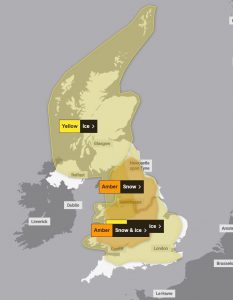Airbnb, eBay, Vinted and other apps to share more information with HMRC
‘Side hustle tax’ to see online platforms share seller details with HMRC
People who make money from online “side hustle” activities like these will find the tax net tightening this year.
From 1 January firms including Vinted, Airbnb, and eBay are obliged to collect and share details of such transactions with the tax authorities.
That will allow HMRC to home in on anyone who should be declaring the extra income but isn’t.
While HMRC was already able to request information from UK-based online operators, from the start of this year there are new rules that the UK has signed up to via the international body, the Organisation for Economic Cooperation and Development (OECD), as part of a global effort to clamp down on tax dodgers.
The new rules require digital platforms to report the income sellers are getting through their site routinely. It will apply to sales of goods such as things that have been handcrafted and second hand clothes, but also services including taxi hire, food delivery, freelance work and short-term accommodation lets or even renting out your driveway for parking.
The information will be shared between countries that have signed up to the OECD tax rules.
The government said the new rules would help it “bear down on tax evasion”, as sellers on digital platforms would now be treated more like traditional businesses.
An HMRC spokesperson said: “These new rules will support our work to help online sellers get their tax right first time. They will also help us detect any deliberate non-compliance, ensuring a level playing field for all taxpayers.”
Firms’ first obligation to report information to HMRC will be at the end of January 2025 and will include information such as the tax ID, bank account details, and the value and volume of transactions for sellers whose activity is of significant enough size.
What do I need to do?
- Online sellers already paying tax do not need to alter what they are already doing
- Individuals have a £1,000 tax-free allowance for money made through property
- There is also a £1,000 allowance for “trading” income – for example, if you offer tutoring or gardening, or if you are selling new or second-hand items online
- People earning below those thresholds may not have to fill in a tax return, but should keep records in case they are asked for them
Under the rules set out by the OECD, firms will not be asked to share data about sellers who make fewer than 30 transactions or €2,000 (£1,735) a year.









